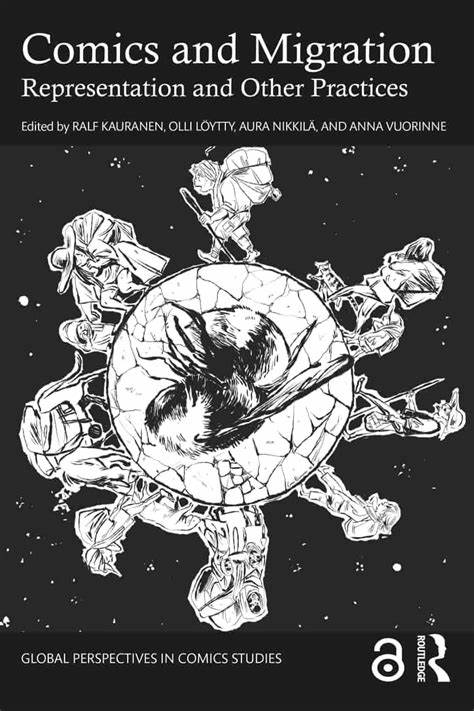Encarnando o Contexto: Banda Desenhada e Migração, Representação e Outras Práticas
DOI:
https://doi.org/10.14195/2182-8830_11-1_14Keywords:
comics, multimodal, legislation, migrationAbstract
"Comics and Migration: Representation and Other Practices (2023)" is a significant contribution to the studies on migration and comics. The book explores the visual and narrative representation of migrants, the cultural practices involved in the creation of comics, and the social impact of these narratives. The work highlights how comics can serve as tools for activism and awareness, influencing public opinion and promoting social change. The analysis includes case studies that illustrate the practical application of theory, covering both autobiographies of migrants and symbolic and metaphorical fiction works. The diversity of perspectives presented offers a comprehensive view of migratory experiences, emphasizing the importance of comics in shaping cultural identities and promoting intercultural dialogues. Additionally, the book addresses the communicative power of comics in technical and professional contexts, such as official contracts for migrant workers. Examples in educational and community contexts demonstrate the potential of comics to promote understanding and inclusion. The ability to simplify and amplify messages through comics, as discussed by McCloud, is evidenced throughout the work. The book's comprehensive and detailed approach makes it an indispensable resource for scholars and those interested in the dynamics between migration and comics. This essential work promotes empathy, inclusion, and social change through art.Downloads
References
DAVIES, Dominic (2019). “Braided Geographies: Bordered Forms and Cross-border Formations in Refugee Comics.” Journal for Cultural Research 23, no. 2: 124-143.
EASON, Jordan (2023). “AI Diversifies Graded Reader Production in Latin America.” MATLIT: Materialidades da Literatura 10, no. 1: 78-92.
KAHNEMAN, Daniel (2011). Thinking, fast and slow. New York: Farrar, Straus and Giroux.
KAURANEN, Ralf, Olli Löytty, Aura Nikkilä, and Anna Vuorinne, eds. (2023). Comics and Migration: Representation and Other Practices. Taylor & Francis.
MACHADO, Ana Maria (2023). “A Literatura no Ensino de Português Língua não Materna (EPLNM): Adaptações e Originais.” Portuguese Literary and Cultural Studies. 127-156.
McCLOUD, Scott (1994). Understanding Comics: The Invisible Art. Vol 106. Northhampton, MA: Kitchen Sink Press.

Downloads
Published
How to Cite
Issue
Section
License
Copyright (c) 2025 Jordan Eason

This work is licensed under a Creative Commons Attribution 4.0 International License.
MATLIT embraces full open access to all issues. Authors who publish with this journal agree to the following terms:
- Authors retain copyright and grant the journal right of first publication with the work simultaneously licensed under a Creative Commons Attribution- 4.0 International (CC BY 4.0) that allows others to share the work with an acknowledgement of the work's authorship and initial publication in this journal.
- Authors are able to enter into separate, additional contractual arrangements for the non-exclusive distribution of the journal's published version of the work (e.g., post it to an institutional repository or publish it in a book), with an acknowledgement of its initial publication in this journal.
- Authors are permitted and encouraged to post their work online (e.g., in institutional repositories or on their website) prior to and during the submission process, as it can lead to productive exchanges, as well as earlier and greater citation of published work (See The Effect of Open Access).
- A CC licensing information in a machine-readable format is embedded in all articles published by MATLIT.
- Attribution — You must give appropriate credit, provide a link to the license, and indicate if changes were made. You may do so in any reasonable manner, but not in any way that suggests the licensor endorses you or your use.
- No additional restrictions — You may not apply legal terms or technological measures that legally restrict others from doing anything the license permits.
Notices:
- You do not have to comply with the license for elements of the material in the public domain or where your use is permitted by an applicable exception or limitation.
- No warranties are given. The license may not give you all of the permissions necessary for your intended use. For example, other rights such as publicity, privacy, or moral rights may limit how you use the material.



